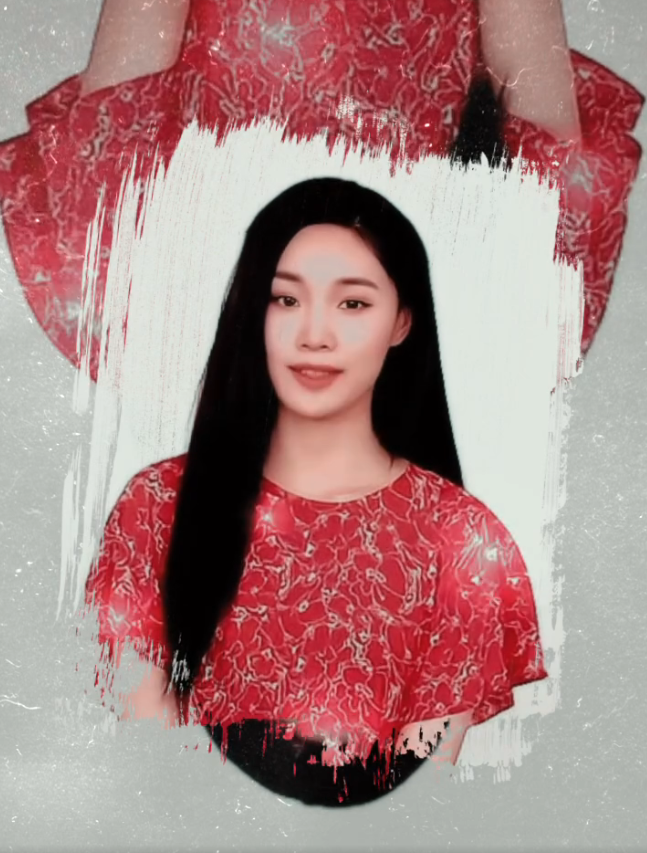When the daughter of veteran Taiwanese musician Tino Bao passed away at the young age of 22 after battling a rare blood disease, the actor expressed his sorrow in a social media post in December 2021:
“At 10:44AM today, I lost the love of my life, my daughter has become an angel. Thank you for being in the Bao family for 22 years and four months, Daddy will forever be by your side from now on; let’s go home.”
Bao began wearing a necklace made of his late daughter’s bone, and grew his hair long as his daughter used to love touching his hair.
The relationship between Bao and his wife, however, has run cold since the demise of their beloved child. The South China Morning Post (SCMP) reported that the spouses stopped speaking to each other for half a year, afraid of saying something that might hurt the other.
However, the couple has since reconnected and restarted their life together when Bao gifted his wife with an AI-generated video of their daughter wishing her mother a happy birthday.
Their love has revived alongside their daughter via the use of artificial intelligence.
AI-generated Daughter Sings her Mother a Birthday Song
Tino Bao, a former pop idol who is pursuing a doctorate in AI, created a video of his late daughter greeting her mother on her birthday, and even singing her a birthday song.
The video was posted on Facebook in January, and features AI-generated Feli Bao saying in Mandarin, “Mom, happy birthday, I really miss you. I hope you will always be happy and pretty.”


The video was also accompanied by the caption, “Dear Feli, welcome back from the digital world!”
When the video began to attract nationwide attention, Tino Bao told Taiwanese media platform Future City in February that recreating his daughter’s image was fairly easy as they had kept many photos of her, but the tricky part was nailing her voice.
Feli was unable to speak towards the end of her life, explained Bao. In order to capture her voice, Bao trained the AI system with only three English sentences recorded from a video call with her mother.
Bao also explained that advancements in AI technology allowed his team to isolate his daughter’s voice from background noise.
This same technology facilitated the posthumous release of the Beatles’ 2023 song “Now and Then,” separating John Lennon’s vocals from a 1970s tape recording.
Currently, Bao utilises his daughter’s digital voice for the intelligent assistant on his phone. He has also created another video of his daughter, this time dressed in a red dress, with Taylor Swift’s hit track “Shake It Off” in the background. Though it was not explicitly said, it can be assumed that the song was also modified to be sung in Feli’s voice.

Is this Ethical or Healthy?
I am not one to weigh in on this as I firmly believe that everyone has their own way of grieving over the loss of their loved ones, and if their relationship did indeed take a turn for the better after seeing the video, who are we to question its effectiveness?
However, naturally, Bao’s actions had sparked debates amongst netizens, particularly on the Chinese social media platform Weibo.
Bao reflected on the ethical implications of employing technology to generate a virtual representation of his daughter, mindful of potentially altering her cherished memory.
Despite his reservations, he still decided to proceed with his plans, stating that he wanted to “keep her alive in the digital world”.
On 11 March 2024, he issued a Facebook apology for using the term “resurrect” in interviews, recognizing that as innovative as AI is today, it simply cannot bring back the deceased.
He promises to use the more appropriate terms, “restoration” and “reappearance” instead.
Many Chinese Mourners Cope with Loss via AI
Bao’s case is not an isolated incident however, as a growing number of people in China have also turned to AI technology to create lifelike avatars of their departed loved ones.
The avatars can then relay 30-second messages of comfort to the people they have left behind.
While this may sound like an episode of a dystopian franchise, experts say that they can offer much-needed solace for people who are devastated with loss.
In January, a mainland company named Super Brain revealed to mainland media outlet Hongxing News that they had “AI-cloned” the deceased relatives of over 600 families in the previous seven months.
Among their clientele, half were parents who had lost their children.
The founder, Mr Zhang, stated that Super Brain charges between 10,000 and 20,000 yuan (S$1,875 and S$3,750) to develop a basic avatar, typically completed within approximately 20 days.
Additionally, clients have the option to engage in video calls with a staff member whose appearance and voice are digitally replaced with those of their deceased loved one.
Mr Sima Huapeng, founder of Nanjing-based Silicon Intelligence, believes this technology heralds a new era of humanism, akin to the transformative impact of portraiture and photography in commemorating the deceased.
Tal Morse, a visiting research fellow at the Centre for Death and Society at the University of Bath, sees potential comfort in ghost bots but underscores the need for further research to grasp their psychological and ethical implications.
There are doubts on how “loyal” these bots are to the deceased’s original personality, and there is potential that the memory of the person they are supposed to represent could be “contaminated” by certain actions or behaviours of these bots.
Nate Sharadin, a philosopher at the University of Hong Kong, also emphasises the need for (and absence of) consent from the departed.
While acknowledging technology’s dual nature, Super Brain’s Mr Zhang prioritizes aiding those in need and avoids scenarios with potential negative impacts.




